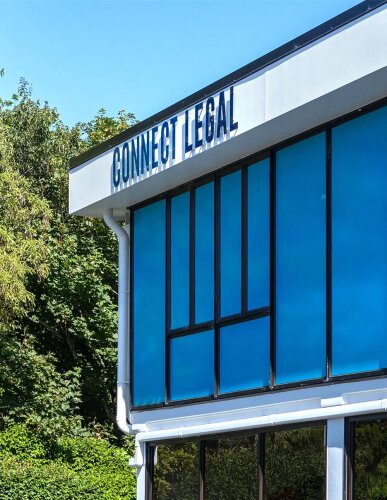Best Collaborative Law Lawyers in New Plymouth
Share your needs with us, get contacted by law firms.
Free. Takes 2 min.
Free Guide to Hiring a Family Lawyer
List of the best lawyers in New Plymouth, New Zealand
About Collaborative Law in New Plymouth, New Zealand
Collaborative Law is an alternative legal process designed to help parties resolve disputes without going to court. In New Plymouth, New Zealand, collaborative law is most commonly used in family law cases, such as separations, divorces, childcare arrangements, and property settlements. The process involves both parties working with trained collaborative lawyers who assist in negotiations in a respectful and open environment. The primary goal is to reach mutually agreeable solutions outside of a courtroom setting, often making the process less adversarial and more cost-effective than traditional litigation.
Why You May Need a Lawyer
Engaging a collaborative lawyer in New Plymouth may be beneficial in several situations, especially where parties wish to resolve their matters amicably. Some typical scenarios include:
- Relationship breakdowns where both parties aim for a respectful separation
- Negotiating care arrangements for children
- Dividing property after a separation or divorce
- Estate disagreements among family members
- Business partnership disputes
- Family-owned business succession planning
A collaborative lawyer can provide guidance, ensure your interests are protected, and help draft legally binding agreements reflecting mutual decisions reached through negotiation.
Local Laws Overview
In New Plymouth, collaborative law operates under the broader framework of New Zealand’s Family Law. Key aspects include:
- The Family Court in New Zealand encourages parties to resolve disputes outside of court when possible
- The Property (Relationships) Act 1976 governs division of property upon separation
- Care of Children Act 2004 focuses on the best interests and welfare of children in care arrangements
- Collaborative Law is a voluntary process that requires both parties to agree to avoid litigation while engaged in collaborative negotiations
- Lawyers practicing this method must be specifically trained in the collaborative process
- Any agreement reached through collaborative law can be formalized in a legally binding contract, subject to the same standards as court-ordered settlements
It is important to note that collaborative law is not suitable for all situations, especially where there is a history of family violence, severe power imbalances, or unwillingness to share information openly.
Frequently Asked Questions
What makes collaborative law different from traditional court proceedings?
Collaborative law prioritises cooperation and problem-solving instead of adversarial litigation. The aim is for both parties and their lawyers to work together to reach a solution that works for everyone, rather than letting a judge decide.
Is collaborative law legally binding in New Plymouth?
Yes, agreements reached through the collaborative law process can be drafted into legally binding documents, provided both parties receive independent legal advice.
What types of cases are most suitable for collaborative law?
Collaborative law is most suitable for family law cases, property settlements, parenting agreements, and some business disputes, primarily where both parties want to avoid court and maintain a good relationship.
Do both parties need their own lawyer?
Yes, each party must have a separate, specially trained collaborative lawyer to ensure that their interests are properly represented and the process is fair for everyone.
Can I switch to court if collaborative negotiations break down?
If the collaborative process fails, parties may still go to court. However, both lawyers must withdraw if negotiations are unsuccessful, and each party must engage new legal representatives for any future court proceedings.
How confidential is the collaborative law process?
Collaborative law meetings are confidential, and statements made during the process generally cannot be used in court if negotiations fail, fostering open and honest discussion.
What happens if my former partner is not willing to negotiate?
Collaborative law is voluntary. If one party is not willing to work together collaboratively, other dispute resolution methods or court proceedings may be necessary.
How long does the collaborative law process usually take?
The length of the process depends on the complexity of the issues and the willingness of both parties to cooperate. Many cases resolve within a few sessions over several weeks, often much faster than court proceedings.
Is collaborative law suitable if there has been family violence?
Collaborative law is generally not suitable in cases involving family violence, significant power imbalances, or unwilling participants. In such cases, other legal protections and procedures may be more appropriate.
What is the cost compared to going to court?
Collaborative law is typically more cost-effective than litigation because it avoids lengthy court battles and streamlines the process. However, costs can vary depending on the number of professionals involved and the complexity of the issues.
Additional Resources
If you are seeking more information or support regarding collaborative law in New Plymouth, the following resources can be helpful:
- New Zealand Law Society - Offers information on finding a collaborative lawyer and explains your legal rights
- Family Court of New Zealand - Provides resources on family law processes and dispute resolution options
- Resolution Institute - Offers guidance on collaborative law, mediation, and dispute resolution professionals
- Community Law Taranaki - Free legal advice and information for those in the New Plymouth region
- New Zealand Family Law Section - Helps locate family law specialists, including those trained in collaborative law
Next Steps
If you believe collaborative law may be suitable for your situation in New Plymouth, consider these steps:
- Research and make a list of collaborative law practitioners in your area
- Arrange consultations to discuss your specific situation and assess compatibility with the collaborative process
- Ensure your former partner or the other party is open to collaborative negotiations
- Confirm that both lawyers involved are collaboratively trained professionals
- Prepare relevant documentation such as financial information, property details, and any other material pertinent to your dispute
- Engage in the process with an open mind, honesty, and a focus on resolving issues respectfully and constructively
Collaborative law may offer a less stressful, more solutions-focused path to resolving disputes in New Plymouth. If you are unsure whether it is right for you, consult a qualified collaborative lawyer for advice tailored to your unique circumstances.
Lawzana helps you find the best lawyers and law firms in New Plymouth through a curated and pre-screened list of qualified legal professionals. Our platform offers rankings and detailed profiles of attorneys and law firms, allowing you to compare based on practice areas, including Collaborative Law, experience, and client feedback.
Each profile includes a description of the firm's areas of practice, client reviews, team members and partners, year of establishment, spoken languages, office locations, contact information, social media presence, and any published articles or resources. Most firms on our platform speak English and are experienced in both local and international legal matters.
Get a quote from top-rated law firms in New Plymouth, New Zealand — quickly, securely, and without unnecessary hassle.
Disclaimer:
The information provided on this page is for general informational purposes only and does not constitute legal advice. While we strive to ensure the accuracy and relevance of the content, legal information may change over time, and interpretations of the law can vary. You should always consult with a qualified legal professional for advice specific to your situation.
We disclaim all liability for actions taken or not taken based on the content of this page. If you believe any information is incorrect or outdated, please contact us, and we will review and update it where appropriate.










